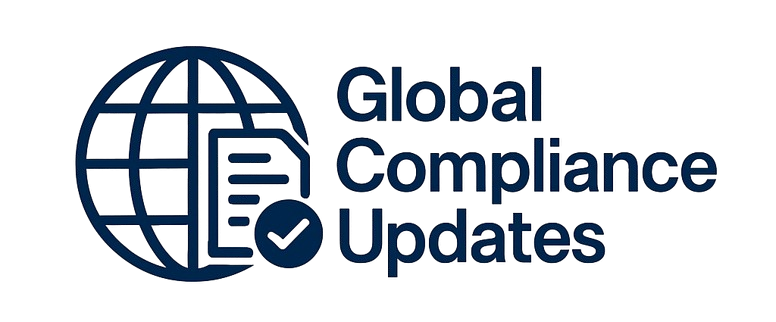Join us for an in-depth webinar for the latest on HR recordkeeping do's and don'ts. Here you'll learn the legal and practical aspects of hard-copy and electronic records management. You'll also understand what you should and shouldn't keep, and for how long, as well as your legal obligations if federal or state agencies, come knocking.
WHY SHOULD YOU ATTEND?
You collect a massive amount of employee information in both paper and digital formats. But what do you need to keep, and for how long? And how can you ensure that records remain confidential, especially in this era of sharing online and via smartphones and tablets?
It's your job to know what can be shared, what must absolutely not be shared, and how all information should be properly protected. Even with old-school hard copy records, it's vital to know the rules on what must be kept and for how long and what can be shredded. Knowing what to keep in case of possible civil penalties or litigation and knowing when you must legally destroy certain records can be like walking a tightrope.
LEARNING OBJECTIVES
- The employment documents and records you must keep on file and for how long
- What to do when state requirements for records retention differ from the federal rules?
- Why keeping everything is almost as dangerous as keeping nothing?
- What constitutes e-records-including examples of digital data such as computer log-on/off times, Outlook calendars, notes and to-do lists, emails, and more?
- How to determine if your existing document creation, storage, retention, and destruction policies are up-to-date and legally sound?
- When and how to shred hard copies or destroy electronic documents-such as for terminated employees?
- When your legal duty to preserve records is triggered?
- And much more!
WHO WILL BENEFIT?
- Records management
- Human Resources
- Payroll
You collect a massive amount of employee information in both paper and digital formats. But what do you need to keep, and for how long? And how can you ensure that records remain confidential, especially in this era of sharing online and via smartphones and tablets?
It's your job to know what can be shared, what must absolutely not be shared, and how all information should be properly protected. Even with old-school hard copy records, it's vital to know the rules on what must be kept and for how long and what can be shredded. Knowing what to keep in case of possible civil penalties or litigation and knowing when you must legally destroy certain records can be like walking a tightrope.
- The employment documents and records you must keep on file and for how long
- What to do when state requirements for records retention differ from the federal rules?
- Why keeping everything is almost as dangerous as keeping nothing?
- What constitutes e-records-including examples of digital data such as computer log-on/off times, Outlook calendars, notes and to-do lists, emails, and more?
- How to determine if your existing document creation, storage, retention, and destruction policies are up-to-date and legally sound?
- When and how to shred hard copies or destroy electronic documents-such as for terminated employees?
- When your legal duty to preserve records is triggered?
- And much more!
- Records management
- Human Resources
- Payroll
Speaker Profile
 Deirdre Kamber Todd
Deirdre Kamber Todd
Deirdre Kamber Todd, Esq., is a partner with The Kamber Law Group, P.C., a next-generation law firm located in Allentown, Pennsylvania. With fifteen years of experience, Deirdre focuses her practice on labor and employment law, social media and technology law, HIPAA, and business law. Specific areas of her employment law practice include discrimination, wage and hour, restrictive covenants, business contracts, unemployment compensation, LGBT issues, labor disputes, FMLA, military leave, social media litigation, information privacy and technology, agency compliance, and medical record privacy. Her clients include companies, non-profits, governmental entities, and individuals. Her work includes consultative and legal services, from outsourced HR …
Upcoming Webinars


Effective Communication: Ensuring Clarity, Accountability a…

2-Hour Virtual Seminar on Workplace Investigations 101: How…

Employers Should Prepare for Immigration Raids in 2026! Thi…

AI for Excel Professionals: Enhancing Productivity with Cha…

The Importance of the first 5 seconds when presenting

Negotiating Skills For Professional Results - Winning Strat…

Workplace Behavior in 2026: Tackling Conflicts and Incivili…

FDA Recommendations for Artificial Intelligence/Machine Lea…

Validation Statistics for Non-Statisticians

Bootcamp for New Managers and Supervisors: Develop These Es…


Interactive dashboards & analytics in Excel


Enhancing Project Management with Storytelling Techniques

4-Hour Workshop on Data Simplified: Sorting and Filtering, …

Creating Your 2026 Marketing Strategy

The Language of Leadership: Is Your Communication Style As …

ChatGPT for Innovative Business Advisory Services for Accou…


Utilizing A Proven Process When Conducting Sensitive, Inter…

How to Write Procedures to Avoid Human Errors

Human Factors Usability Studies Following ISO 62366 and FDA…

Why EBITDA Doesn't Spell Cash Flow and What Does?

Mastering DAX Patterns in the Era of AI & Copilot

Establishing Appropriate Quality Metrics and Key Performanc…


IRS Form 1099 Reporting: Compliance Requirements

FDA QMSR Explained: How the QMSR Replaces the QSR

How to Manage the Legal Landmine of the FMLA, ADA and Worke…

Understanding EBITDA – Definition, Formula & Calculation

Tattoos, hijabs, piercings, and pink hair: The challenges …

FDA Compliance And Laboratory Computer System Validation

Medical Device Hazard analysis following ISO 14971




Excel Spreadsheets; Develop and Validate for 21 CFR Part 11…

Excel + AI: The Smart User's Guide to Faster, Easier Work w…
